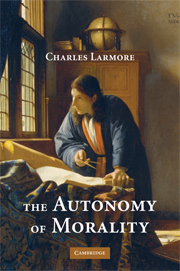Book contents
6 - The Moral Basis of Political Liberalism
Published online by Cambridge University Press: 05 June 2012
Summary
INTRODUCTION
The exchange of essays between John Rawls and Jürgen Habermas, published in 1995 by The Journal of Philosophy, was an important and long-awaited event. The two greatest political philosophers of our time had turned to comment directly on each other's conceptions of political legitimacy and social justice, the nature of citizenship, and the goals of political argument. We learned what Rawls and Habermas each thought, rightly or wrongly, are the strengths and weaknesses of the other's philosophy. On the whole, Habermas sought to accentuate their differences, while Rawls, though noting significant disagreements, tried to underscore the common elements in their positions. I believe that in reality the two thinkers are far closer to one another than Habermas realized, but that their proximity is not of the sort that Rawls imagined. In my view, their fundamental point of convergence consists in a common failing.
Each of them aims to reconceive the core principles of liberal democracy in a “freestanding” or “autonomous” fashion, dispensing with the divisive ethical or religious underpinnings of the past and regarding them instead as having a strictly political basis in their acceptability to the citizens whom they are to bind. This project, the project of “political liberalism,” is one I share. Yet in pursuing it, Rawls and Habermas both lose sight of the moral assumptions that inspire this project and that therefore underlie the common ground on which the principles of liberal democracy are to rest, even when standing free from any general philosophy of man.
- Type
- Chapter
- Information
- The Autonomy of Morality , pp. 139 - 167Publisher: Cambridge University PressPrint publication year: 2008
References
- 2
- Cited by

